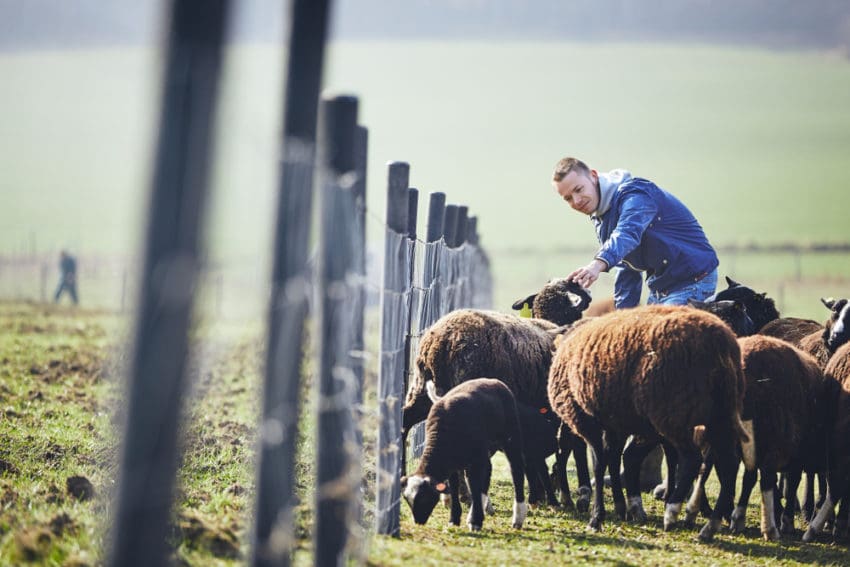Ministers are working on a no-deal Brexit plan for farming in which the government would step in and buy slaughtered livestock at set prices in the event of a collapse in European demand because of high tariffs.
Boris Johnson travelled to Wales today and pledged that British farmers would be better off if the UK left the European Union at the end of October even if it were without a deal.
Under plans being finalised by Michael Gove, the former environment secretary who is now in charge of Whitehall no-deal planning, the government would agree to buy any lamb and beef at the point of slaughter at a pre-determined price.
The commitment, expected to cost the Treasury about half a billion pounds a year, would also cover some arable crops where EU exports might dry up.
Mr Johnson also pledged today to unveil a replacement to the EU’s Common Agricultural Policy that will ensure farmers get a “better deal” than at present.
But farmers’ leaders are concerned that the government scheme may have to last for several years while trade deals are negotiated.
There is also concern that they may never make up for the lack of market access to the EU, which would be hard to win back, even if an eventual trade deal were struck.
The UK beef industry exports about 92,000 tonnes of beef to the EU which will face tariffs of 65 per cent of wholesale value, depending on the category of product. The cumulative cost of beef exports facing EU tariffs is more than £250 million.
EU sheep meat and live animal imports will face tariffs of about 46 per cent, making British lamb exports to Europe uneconomic. Economists have predicted that a no-deal Brexit would depress the market rate for lamb by 30 per cent.
Alun Cairns, the Welsh secretary, suggested that new global markets, including in Japan, would be available to sheep meat producers.
“We are now looking to the growth that will come from right around the world,” he told Today on BBC Radio 4.
“I would point to the market in Japan that has just been opened to Welsh and British sheep, for example, so exports are already taking place there. That is a significant market for which we haven’t even scratched the surface yet.”
However, Liz Saville Roberts, Plaid Cymru’s Westminster leader, pointed out that Japanese market had been opened up to Welsh lamb by the EU-Japan trade deal.
Mr Cairns insisted that as an independent trading nation “there will be these markets and these opportunities there”.
Asked what he would say to those who said were threatening civil unrest if their export markets were destroyed, he said: “New markets have already opened up and there are new protocols in place for additional markets as well.”
Minette Batters, president of the National Farmers’ Union, said the mass slaughter of livestock was “absolutely something that we want to avoid at all costs”, as she queried where lamb products would go if farmers were “tariffed out of the EU market”.
“Trade deals don’t just get picked off the shelf in a couple of months,” she said.
Helen Roberts, development officer for the National Sheep Association (NSA) in Wales, called on Mr Johnson to “stop playing Russian roulette with the industry which he appears to be doing at the moment”.
She told Today: “If we do go out with a no-deal it will be absolutely catastrophic, even if it’s just for a few months.”
Asked about the possibility of civil unrest, including roadblocks and tractor protests, among sheep producers, she said: “I think they will, I think it’s time to come and stand up for ourselves and be counted.”


